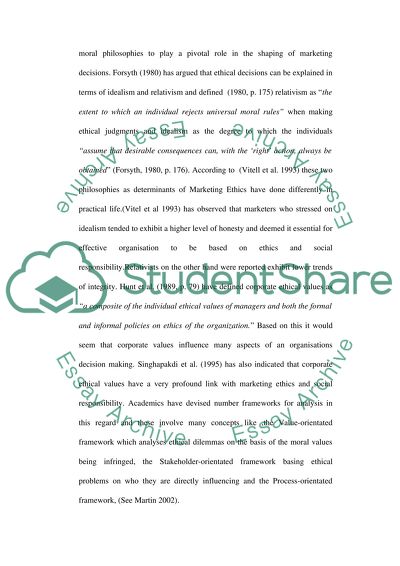Cite this document
(“Ethics in Marketing Essay Example | Topics and Well Written Essays - 3750 words”, n.d.)
Retrieved from https://studentshare.org/sociology/1528030-ethics-in-marketing
Retrieved from https://studentshare.org/sociology/1528030-ethics-in-marketing
(Ethics in Marketing Essay Example | Topics and Well Written Essays - 3750 Words)
https://studentshare.org/sociology/1528030-ethics-in-marketing.
https://studentshare.org/sociology/1528030-ethics-in-marketing.
“Ethics in Marketing Essay Example | Topics and Well Written Essays - 3750 Words”, n.d. https://studentshare.org/sociology/1528030-ethics-in-marketing.


